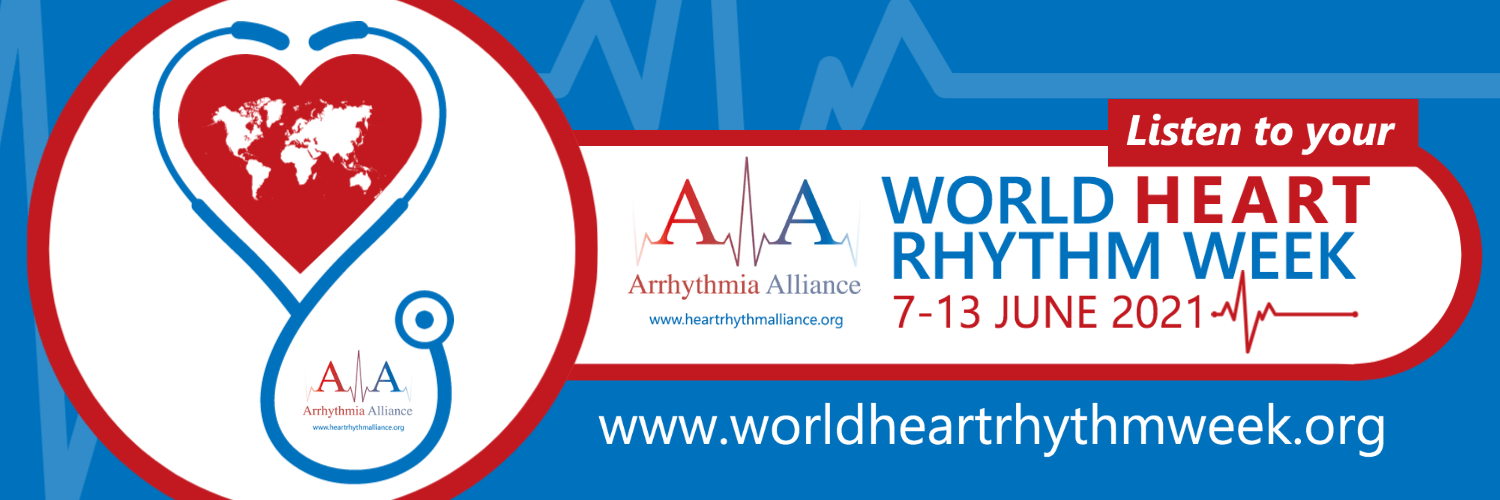Arrhythmia Alliance World Heart Rhythm Week is an annual awareness week that focuses on detecting arrhythmias (irregular heart rhythms). We are delighted to help raise awareness and promote this important initiative.
Make sure you ‘Know Your Pulse to Know Your Heart Rhythm – It Could Save Your Life’ if you are a long-term fitness fan, as Trudie Lobban MBE writes.
Regular exercise is an important part of leading a healthy lifestyle, which helps to prevent life-threatening events such as heart disease and strokes, but intensive exercise, over a long period of time, may increase the risk of atrial fibrillation (AF) – the most common type of arrhythmia – heart rhythm disorder. The charity Arrhythmia Alliance, and its sister charity AF Association, encourages long-term fitness fans to be aware of the risks of AF and to know how to detect it with a simple pulse check.
That regular exercise has health benefits is undeniable, with multiple studies showing that regular exercise (alongside a healthy diet) can help to reduce the risk of heart disease, stroke and many other conditions. In particular, exercise can help to prevent AF. Obesity (and the associated lack of exercise) is both a risk factor for AF and a risk factor for the progression of AF.1 The AF Association White Paper — Put People First notes, “If people, from a young age, adopt a [active] healthy lifestyle, then they are less likely to become obese and, subsequently, are less likely to develop AF.”1
However, as with a lot of things in life, you can have too much of a good thing. Guasch and Mont report that “a growing core of evidence” indicates that “strenuous physical activity is not only able to trigger cardiac events but can promote the development of cardiovascular disease in individuals with no previous cardiovascular abnormalities.” 2 Specifically, they comment that the risk of AF appears to increase with both intensity and duration (i.e., regularly performing intense exercise over a long period of time may put you at increased risk of developing AF).
AF is the most common type of arrhythmia and affects more than 1.5 million people across the UK. Once thought to be benign, it is now recognised as being a major risk factor for stroke. People with AF, without appropriate therapy and treatment, are five times more likely to have an AF-related stroke than someone without AF. AF-related strokes are known to be more fatal and more disabling than other types of stroke. AF is also associated with heart failure, dementia, depression, anxiety and poor quality of life.
Unfortunately, AF is often asymptomatic (no symptoms) and some people only discover that they have AF when they have an AF-related stroke. Arrhythmia Alliance and AF Association work together to encourage everyone — from the sedentary to the professional athlete — to get into the habit of regularly checking their pulse because an irregular pulse can be a sign of AF. We provide information and advice on performing a pulse check — manually or with smart wearables, which can detect irregular heart rhythms such as AF — on our dedicated Know Your Pulse page (KnowYourPulse.org). We will be promoting the importance of our Know Your Pulse campaign as part of World Heart Rhythm Week (7-13 June). Find out more by visiting worldheartrhythmweek.org
If an irregular pulse is detected, we strongly advise people to seek prompt medical attention. If AF is then detected, you can be given therapies to protect against AF-related stroke and treatments to correct the irregular rhythm.
Remember: Know Your Pulse to Know Your Heart Rhythm – It Could Save Your Life.
For information about AF, Arrhythmia Alliance and AF Association, visit heartrhythmalliance.org
References
- AF Association AF White Paper — Put People First(2021), https://bit.ly/AFAWhitePaper
- Guasch E, Mont L (2017), Diagnosis, pathophysiology, and management of exercise-induced arrhythmias, Nat Rev Cardiol, 14(2): 88-101.
What next? Check out all our other blogs on a huge range of topics.
Author Bio

Trudie Lobban MBE is Founder and CEO of both Arrhythmia Alliance and AF Association.







